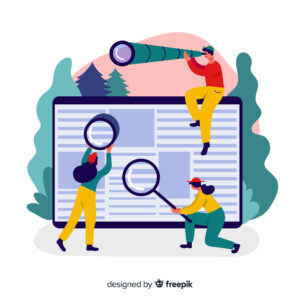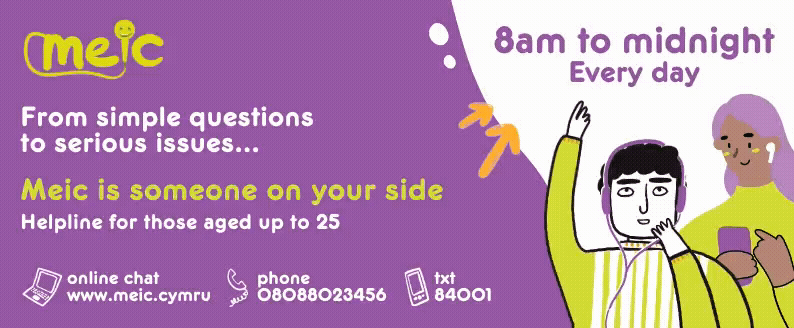How To Figure Out If Something Is Fake On The Internet

It’s important that you know how to spot misinformation on the Internet. Fake news is everywhere right now and you if you’re aware that not everything that you see is real then it might stop you from sharing something that could be misleading or harmful to others. Check out Meic’s tips below.
I ddarllen yr erthygl hon yn Gymraeg, clicia yma
If you’re not sure what misinformation is then check out our other blog – What is Misinformation (Fake News)?
Does it sound right?
If you’re going to share something then always ask yourself if it sounds right or if it’s believable. Sometimes when you stop and think it will become obvious that something isn’t quite right. Taking 5 or 10 minutes to check if that information is correct will save you from possible embarrassment or guilt later.
Check the URL
Sometimes a story will be made to look like it’s from a trusted source to make you believe it – like a post made to look like it’s from the BBC – but if you check the linked URL you will see that it isn’t really a BBC link. Always check where the URL links to. Also check that the website finishes in ‘.cym’ ‘.co.uk’ ‘.com’ ‘.gov’ ‘.llyw’ (or other common URL’s). If the end of the URL looks strange then look into it further.

Do your research
Cross-reference by checking if it’s been reported anywhere else. Look at trusted news sources. If you can’t find it on these websites then it’s unlikely that it’s actually true. If it’s appears on lots of different websites then it’s more likely to be true. Have you heard of the organisation that published the story originally? If you’ve never heard of them, do a quick Google check. Some trusted sources of information are places like the BBC, ITV, Channel 4, Newsround, NHS or WHO.
Look beyond the headline
Lots of people will share a post because of the headline and won’t actually click to read the story itself. If you’re going to share, make sure you know exactly what it is that you’re sharing. Headlines are designed to be eye catching and to sensationalize. It might not be that big a deal when you actually look into it.
Clickbait also uses headlines or pictures to draw people in, and often the story doesn’t correspond to what the heading or photo suggested. You can usually tell if something is a non-story, or clickbait, by having a quick look at the comments.
Is the image or video real?
Does it look normal? Is the video glitchy or are there noticeable cuts? You might think that a video is difficult to fake, but technology means that anything can be faked. Take a look at Deepfakes and what it is in the video below.
Are they trying to sell something?
If it’s a person you follow and they’ve tagged it as an ‘ad’, ‘sponsored’ or ‘promoted’ post then you need to take what is said with a pinch of salt. They are being paid to give a positive review so you need to remember that.
If it’s an actual advert selling something at a much cheaper price than other sellers then it’s usually too good to be true. They’ll likely take your money and not send you the product. Only buy from trusted places. A quick check of TrustPilot will help. If they have bad reviews or they don’t appear there – then avoid.

Ask for help
Still worried? If you’re not sure how to spot if something is true or not or you’re worried about something that’s been shared, then talk to a trusted adult. Ask them if they can help you check if something is true or not. If you’re worried then talk to them about it. It’s likely they’ll be able to help.
If you feel that you don’t have anyone you can talk to then Meic is here for you between 8am and midnight every day. A free, bilingual, confidential helpline for those under 25 years old in Wales.
If you want to understand what Misinformation is then check out our other blog – What Is Misinformation (Fake News)
Find yourself envious of people’s perfect lives on Instagram. Don’t let your self-esteem suffer, check out our blog – Is What You See On Instagram Real
Further links
The websites below aim to check facts or give advice about fact checking. Check them out:
- BBC News – Reality Check
- Channel4 news – Factcheck
- Snopes – Fact checking website
- The World Health Organsiation – Myth Busters
- Trustpilot – reviews of businesses
- Full Fact – fact checkers
- Ask For Evidence – helps you ask for evidence about health claims, news stories, ads and policies
- NewsWise Navigator – Stop Question Check Decide – A tick list to check before you share anything
- BBC Bitesize – Fact or Fake – There are loads of different articles here on how to spot fake news, finding reliable sources, quizzes, being social media smart, how algorithms and filter bubbles decide what you see on social media and lots, lots more great content.
Get help
Meic is always here to talk. If you’re feeling down or worried about anything then give us a call, text or chat to us online. We’re here to listen and to offer advice.







; ?>/images/chat-offline.png)







